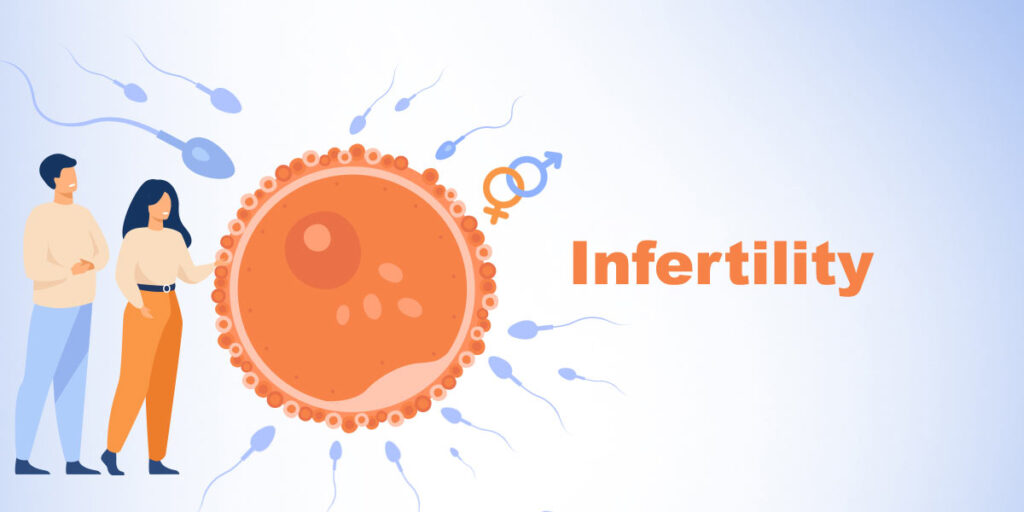
Addressing infertility involves a comprehensive approach that includes medical treatment, lifestyle changes, and emotional support. The following program outlines strategies to improve fertility for both men and women:
Infertility Program
1. Medical Evaluation and Treatment
- Consult a Specialist:
- Visit a reproductive endocrinologist or fertility specialist for a thorough evaluation.
- Both partners should undergo fertility assessments, which may include blood tests, semen analysis, ultrasound, and other diagnostic procedures.
- Identify Underlying Issues:
- Conditions such as PCOS, endometriosis, thyroid disorders, or male factor infertility should be diagnosed and managed.
- Treat any identified infections or hormonal imbalances.
- Treatment Options:
- Medications: Clomiphene citrate, letrozole, or gonadotropins to stimulate ovulation.
- Surgical Procedures: To correct anatomical issues (e.g., removal of fibroids, treatment of endometriosis).
- Assisted Reproductive Technologies (ART): Intrauterine insemination (IUI), in vitro fertilization (IVF), or intracytoplasmic sperm injection (ICSI).
2. Nutritional and Lifestyle Changes
- Healthy Diet:
- Eat a balanced diet rich in fruits, vegetables, whole grains, lean proteins, and healthy fats.
- Maintain a healthy weight; both underweight and overweight can affect fertility.
- Consider a Mediterranean diet, which has been associated with improved fertility outcomes.
- Supplements:
- For Women: Folic acid, prenatal vitamins, vitamin D, omega-3 fatty acids, and coenzyme Q10.
- For Men: Zinc, selenium, vitamin C, vitamin E, and coenzyme Q10 to improve sperm quality.
- Avoid Harmful Substances:
- Stop smoking and limit alcohol intake.
- Avoid recreational drugs and reduce caffeine consumption.
- Minimize exposure to environmental toxins and endocrine disruptors.
3. Exercise and Physical Activity
- Moderate Exercise:
- Engage in regular, moderate exercise (e.g., brisk walking, swimming, cycling) to maintain a healthy weight and reduce stress.
- Avoid excessive exercise, which can negatively impact fertility, particularly in women.
- Yoga and Relaxation:
- Incorporate yoga and relaxation techniques to reduce stress and improve overall well-being.
4. Stress Management and Emotional Support
- Stress Reduction:
- Practice mindfulness, meditation, and deep-breathing exercises to manage stress.
- Consider acupuncture, which may improve fertility and reduce stress.
- Counseling and Support Groups:
- Seek counseling or therapy to cope with the emotional aspects of infertility.
- Join support groups to connect with others experiencing similar challenges.
5. Timing and Tracking
- Track Ovulation:
- Use ovulation predictor kits, basal body temperature charts, or fertility apps to identify the most fertile days in your cycle.
- Monitor cervical mucus changes to determine ovulation.
- Regular Intercourse:
- Aim to have intercourse every 2-3 days during the fertile window to increase the chances of conception.
6. Alternative and Complementary Therapies
- Herbal Supplements:
- Some herbal supplements, like vitex (chasteberry) or maca root, may support hormonal balance (consult with a healthcare provider before using any supplements).
- Traditional Chinese Medicine (TCM):
- Acupuncture and TCM herbs may improve fertility, but it’s important to work with a qualified practitioner.
Conclusion
Improving fertility often requires a multifaceted approach that includes medical treatment, lifestyle changes, and emotional support. By adopting a comprehensive program, couples can optimize their chances of conceiving. Always consult with healthcare professionals before starting any new treatments or making significant lifestyle changes.
